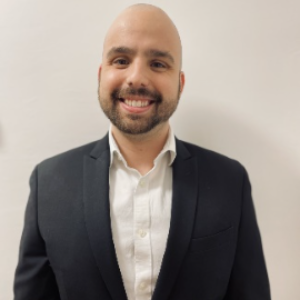Title : A Mild Cognitive Impairment Diagnostic Tool In Comparison To The Unified Huntington’s Disease Rating Scale: Cognitive Battery
Abstract:
Background: A diagnosis of manifest Huntington’s disease (HD) is based primarily on motor symptoms, but early cognitive decline is common in the pre-manifest HD period (preHD). Early symptom detection in HD has important implications for monitoring both disease progression and the effects of disease-modifying treatment trials. Identifying the assessments with the highest sensitivity for capturing early cognitive changes in preHD, therefore, remains a priority.
Objectives: The Loewenstein Acevedo Scales of Semantic Interference and Learning (LASSI-L) is a novel test that captures simultaneous deficits in executive functioning, processing speed, and memory retrieval. Our goals were to determine whether the LASSI-L could detect cognitive deficits in preHD and compare this to the Unified Huntington’s Disease Rating Scale (UHDRS): Cognitive Battery.
Methods: We administered the LASSI-L to 14 preHD participants and 12 healthy controls, matched for age, sex, and education, recruited from the Huntington’s Disease Society of America Center of Excellence at Beth Israel Deaconess Medical Center (BIDMC). As a comparison, we administered the UHDRS cognitive battery which includes the Stroop, Symbol Digit Modalities Test (SDMT), and Category Fluency (Animals).
Results: 6 of 7 sections on the LASSI-L captured significant group differences: proactive semantic interference (PSI) (p < 0.001), failure to recover from PSI (frPSI) (p = 0.035), retroactive semantic interference (RSI) (p = 0.020), delayed recall (p < 0.001), B1 cued recall intrusions (p = 0.007), and B2 cued recall intrusions (p = 0.033). Using (FDR) < 0.05, PSI, RSI, delayed recall, and B1 cued recall intrusions remained significant. In comparison, from the UHDRS cognitive battery only the three sections of the Stoop were significant. Stroop Word Reading (p < 0.001), Stroop Color Naming (p = 0.005), and Stroop Interference (p = 0.041). Using (FDR) < 0.05, only Word Reading and Color Naming remained significant.
Conclusions: The LASSI-L is a time-efficient and sensitive task that captures early cognitive decline in pre-manifest HD and outperforms several commonly used neuropsychological tests. These results show that the LASSI-L would be a useful addition to current protocols in preHD-related studies.
What will audience learn from your presentation?
- The audience will learn that although Huntington’s disease is primarily thought of as a motor manifest disease, cognitive decline precedes these symptoms and should be focused on as an early biomarker for manifestation.
- Although the UHDRS cognitive battery has been the standard since 1996, it would be important to update the battery with paradigms that significantly capture deficits not only initially, but over time.
- Proactive Semantic Interference seems to be a predominant marker in deficits of cognition with pre-manifest HD.
- Lastly, the LASSI-L is a cost effective, time-efficient, and sensitive assessment that would be practical to use in a clinic setting.




